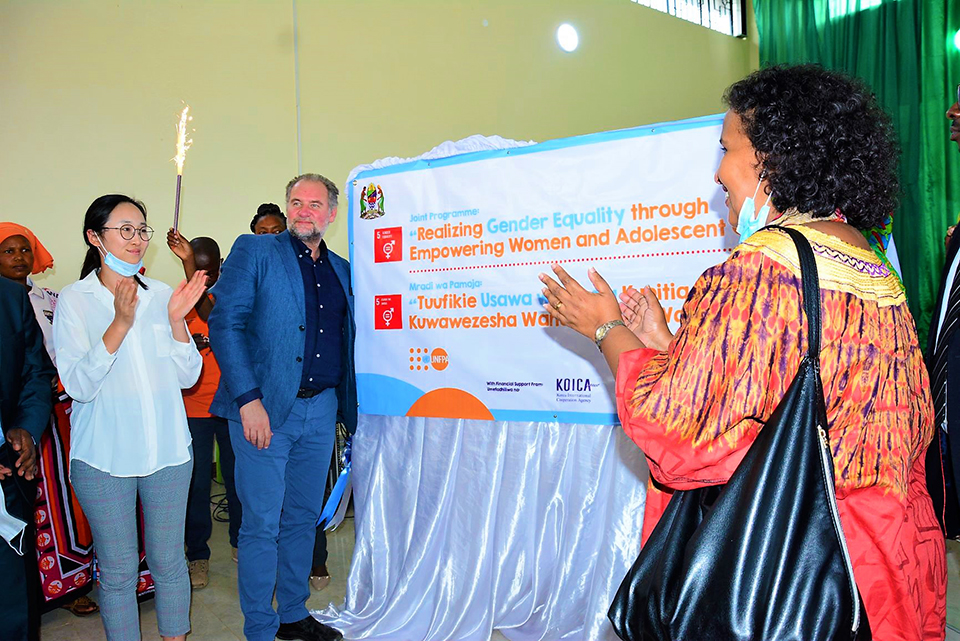New Joint UN Women and UNFPA partnership to empower women smallholders in Singida and Shinyanga regions of Tanzania
UN Women and UNFPA have launched a US$ 5 million Joint Programme “Realizing Gender Equality through Empowering Women and Adolescent Girls” with funding from the Korea International Cooperation Agency (KOICA).Date:

Through the KOICA’s support, the Joint Programme will reach over 48,000 of some of the furthest behind households, targeting women and girls in Tanzania’s Ikungi District, Singida Region and Msalala District, Shinyanga Region, over its three-year lifespan.
UN Women and UNFPA will combine their strengths to enhance the social and economic resilience of women and adolescent girls in the two project districts by addressing the crucially intertwined socioeconomic challenges that women and adolescent girls face in rural Tanzania – which act as barriers to women’s economic and social empowerment and place them at risk to gender-based violence (GBV) and harmful practices. Speaking in Singida region, the UN Women Representative, Ms. Hodan Addou said a total of 2,350 women and adolescent girls will benefit from the programme, specifically in the horticulture and sunflower value chains and through efforts that will aim to enhance the capacity of communities to prevent, and respond to gender-based violence.
“We will seek to address barriers that affect women smallholders’ productivity head-on, and with a strong focus on strengthening good agricultural and climate-resilient practices. UN Women will also support collective marketing strategies including putting in place key infrastructure, such as a sunflower warehouse for storage, and greenhouses to increase productivity,” Ms. Addou said. UN Women will work with women farmers and the local authorities to increase access to markets by linking buyers to farmers, in addition to strengthening their entrepreneurship skills and economic agency. In order to implement these initiatives successfully, the programme will also work to address women’s limited access to land and ownership.
“We are aware that when women are deprived of land ownership, this can limit their decision-making power – whether individually or as a collective – on production, marketing capacity and income. UN Women will work with the government to strengthen land tenure security by promoting women’s sole and joint land ownership. We are also going to support participatory village land use planning, and the issuance of Certificates of Customary Rights of Occupancy (CCROs) to women,” Ms. Addou said.
The local communities’ commitment to upholding women and girls’ rights in Ikungi and Msalala districts will be harnessed through extensive outreach campaigns, expected to reach more than 48,000 people in both project districts, to promote positive shifts in social norms around women’s economic agency, land rights and GBV and harmful practices, including child marriage and female genital mutilation.